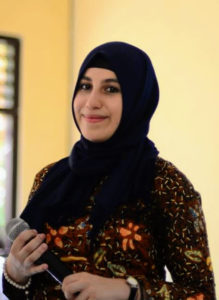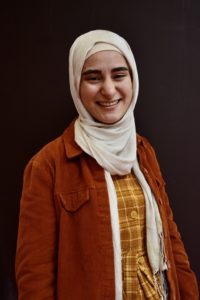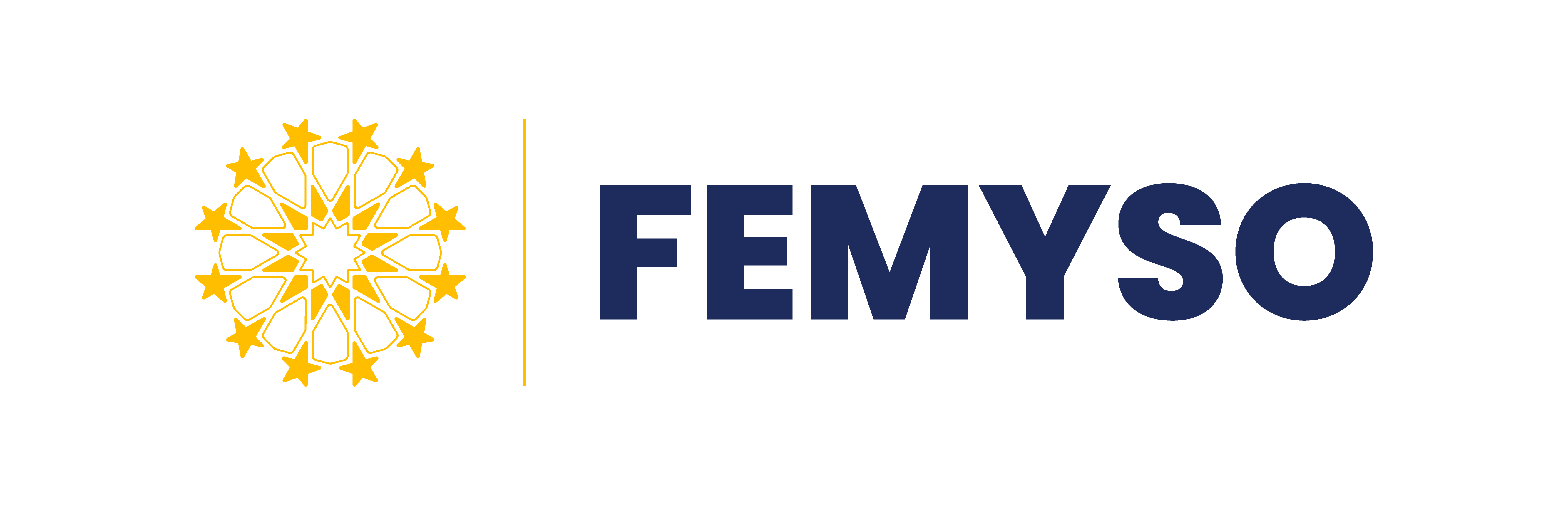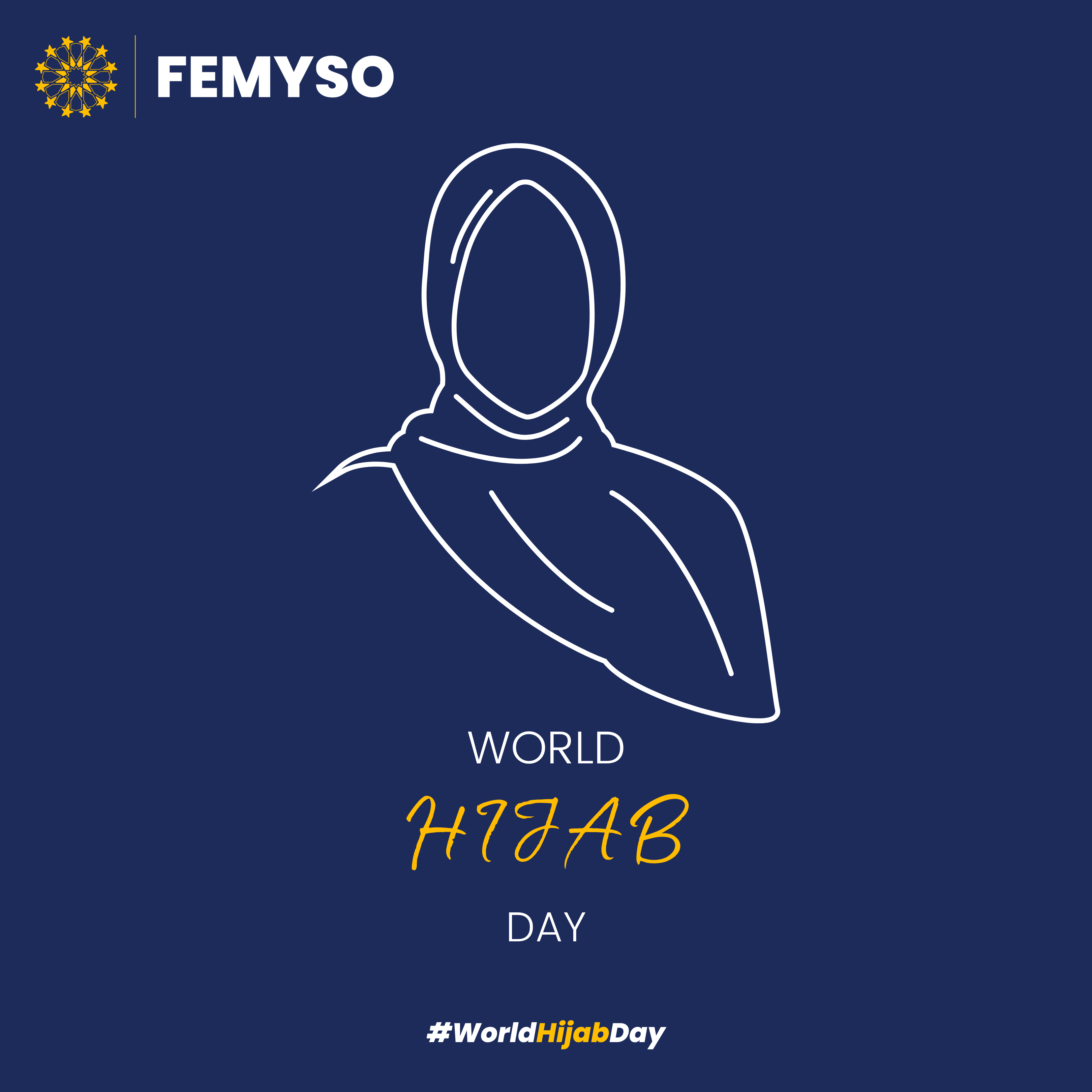Dear reader,
FEMYSOblog is coming to life, and we are excited to be sharing with you articles on various topics written by different people, coming from different life paths and who have been through different experiences. Every month, you will be reading original written pieces that hopefully will inspire you, benefit you and will encourage you to share your thoughts and ideas with us. We wish you an enjoyable reading!
World Hijab Day
The 1st of February marks the World Hijab Day, a movement started in New York by Nazma Khan in 2013 to recognize millions of Muslim women who choose to wear the hijab and live a life of modesty and encourage religious tolerance and understanding by inviting (non-Hijabi Muslims & non-Muslims) to experience the hijab for one day. What Nazma hopes is to make people understand why Muslim women choose to wear the hijab. Her movement became a non-profit organisation in 2018 which aims to fight discrimination against Muslim women through awareness and education1.
FEMYSO supports World Hijab Day and denounces any discrimination shown against the wearing of the hijab. Wearing the hijab is a choice made by Muslim women that should be respected and none should interfere with it. Muslim women should feel safe to wear the hijab and should feel safe to be themselves, as it is part of their identity. Since World Hijab Day aims to give voice to Muslim women, FEMYSO is sharing stories of Muslim women that wear the hijab, to allow you to understand their journey with the hijab and to provide a different perspective. Every woman has a personal connection with the hijab and hopefully, their stories will give you a better understanding of their choice.
Ibtihelle
“For a very long time, I knew that I really wanted to wear the hijab. But because I was living in France, I had to wait until the right time as it was impossible to wear it in school and it was then difficult at university and work.
Finally, after finishing my studies and leaving my job, I was free to wear it. No one put obstacles despite the lack of support from my father and brother on this important choice. So, my story goes a bit against prejudices…
Today, I’m a proud young French Muslim woman wearing the hijab and I hope that one day people in France will value me as a person full of potential, beyond my appearance and the scarf on my head.”

Zaineb
“Wearing the hijab happened unexpectedly, -like receiving the revelation from God- my friend commented when she saw me wearing the hijab at university in September. Why? Because when I was a teenager and despite having parents that encouraged me to wear the hijab, I never had in mind that I would wear it in my twenties as I did not understand the meaning of the hijab and the reason why Muslim women would wear it. What happened to me? You might wonder.
There was no brainwashing or forcing. I was going through a spiritual journey, learning more about my faith and God, and the more I was connecting to God, the more I wanted to feel protected and closer to Him. And I felt the need to wear the hijab to be closer to God; it represented my freedom and protection from God, like I could literally feel His presence.
Years have passed and my hijab has been my companion, everywhere in the world I was, the hijab was with me, remembering me of God’s closeness and protection. And it has never been an obstacle to anything that I wanted to achieve, but rather an encouragement.”

Hande
“For me, the headscarf is a private act of worshipping God. It is a form of training the self, the so-called nafs (soul) from the material world, of having a stronger spiritual orientation in the psyche and thus of becoming a stronger and more independent person, allowing in turn to be more effective in our daily work, commitments and relations. To me it is also a constant reminder of a life after death and that we get one chance to live on this world – therefore we must always strive for excellence, for never hurting others, for doing justice and fighting injustice – essentially Islamic principles. It is really important that the spiritual essence of the headscarf is not lost, due to pressure from an ever-growing unsustainable fashion industry that capitalises on a form of worship.”

Aisyah
“Many will find my hijab journey incomprehensible. My decision to put it on was not hasty, forced, or anything like that but rather was purely out of my choice that was made after an unexpected spiritual journey.
Initially, the hijab was merely a connection I experienced on a physical level. Coming from a Muslim-majority country like Indonesia, hijab is considered a social norm and standard (that is better) to adhere to. Therefore, I only covered myself when attending school and social events.
I think the sole reason that led me to wear the hijab permanently was because of this “habit” of mine. Have you heard of “Beware of habits you inhabit”? I did not expect it to direct me to one of the biggest decisions in my life. As someone who lived on an island, I got used to watching sunrise and sunset every day for 5-10 mins. I would sit by the doorstep when I woke up, watched the sky changing colours, and felt the breeze. I found it peaceful and calming. This moment, after some time, brought me to ask myself sort of philosophical questions, “Aisyah, until when are you going to be like this? What’s going to happen when you leave this world?” I had no idea where this was coming from but witnessing the sun temporarily rising and setting made me realize I too will be gone one day. Not long after that, I found myself watching the music concert of my favourite band until 2 am as the only hijabi (felt like the coolest chick among the crowd that night). I later donated all those music band-related stuff to orphanages. That was when I started to understand that I have connected with my hijab to the deeper level – my heart. It’s so liberating.”

Check this website to learn more about the NGO World Hijab Day: https://worldhijabday.com/our-story/



